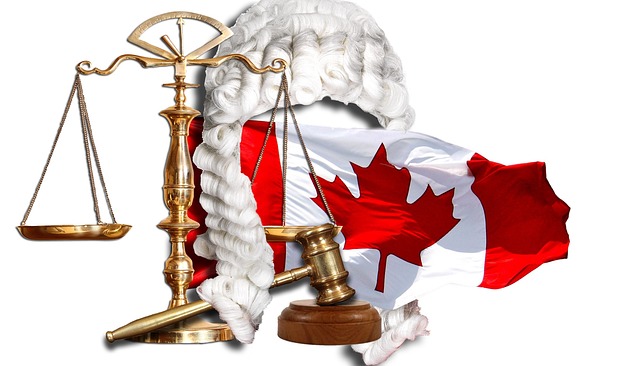Fair trial rights protection is a cornerstone of criminal defense, ensuring every accused receives a just hearing. This involves safeguarding constitutional entitlements like the presumption of innocence and right to effective legal counsel. Lawyers employ strategic defenses, challenge evidence, and protect client interests. A robust strategy includes meticulous case analysis, proper evidence handling, understanding courtroom procedures, and appellate review to rectify errors. Post-conviction relief processes offer a path for those wrongfully accused to seek justice and ensure fair trial rights protection.
In the pursuit of justice, a comprehensive approach to criminal defense is paramount. This article delves into the multifaceted aspects of legal representation, focusing on safeguarding individual rights and ensuring procedural fairness. From understanding fair trial rights as a cornerstone to mastering courtroom procedures and exploring appellate review options, each section reveals strategic interventions at critical stages. By examining case analysis, evidence handling, post-conviction relief, and early stage legal protections, we illuminate the path toward justice for those accused.
- Understanding Fair Trial Rights: A Cornerstone of Criminal Defense
- Protecting Suspects: Early Stage Legal Interventions
- Building a Robust Defense Strategy: Case Analysis and Evidence Handling
- Navigating Courtroom Procedures: Ensuring Procedural Fairness
- Appellate Review: Challenging Unjust Convictions
- Post-Conviction Relief: Options for Innocent Persons Wrongfully Accused
Understanding Fair Trial Rights: A Cornerstone of Criminal Defense

Understanding and safeguarding fair trial rights is a fundamental aspect of criminal defense, ensuring that every individual accused of a crime receives a just and impartial hearing. This cornerstone of legal representation involves protecting the defendant’s constitutional entitlements, which are vital to maintaining a balanced justice system. The right to a fair trial encompasses various elements, including the presumption of innocence, protection from self-incrimination, and the right to effective legal counsel.
Lawyers play a crucial role in ensuring these rights by providing thorough defense strategies, challenging evidence, and protecting their clients’ interests throughout the legal process. By upholding the principles of fair trial rights protection, the criminal justice system can maintain its integrity and ensure that justice is served without bias or prejudice.
Protecting Suspects: Early Stage Legal Interventions

Ensuring a fair trial is paramount in any criminal justice system, and protecting suspects’ rights at the early stages of an investigation is crucial. Legal interventions during this critical period can prevent potential miscarriages of justice by safeguarding individuals from self-incrimination, ensuring their right to counsel, and preserving evidence that may be pivotal to their defense.
These initial legal safeguards are vital in maintaining the integrity of the criminal process. Defense attorneys play a significant role here, offering strategic guidance and ensuring suspects understand their rights. Early legal representation can also challenge any illegal search or seizure, protecting the suspect’s privacy and preventing the prosecution from gaining an unfair advantage.
Building a Robust Defense Strategy: Case Analysis and Evidence Handling

A comprehensive approach to criminal defense begins with a meticulous case analysis that forms the bedrock of your strategy. This involves thoroughly examining all available evidence, both factual and legal, to construct a robust narrative that challenges the prosecution’s case. By meticulously analyzing witness statements, physical evidence, and relevant laws, defenders can identify weaknesses in the state’s argument and develop effective counterpoints.
Proper evidence handling is another critical aspect. This includes preserving and presenting relevant documentation, photographs, and expert opinions in a structured manner. Effective defense teams organize and catalog evidence, ensuring it is admissible in court and can be presented convincingly to a jury or judge. This strategic approach not only ensures a fair trial rights protection but also strengthens the overall defense strategy.
Navigating Courtroom Procedures: Ensuring Procedural Fairness

Navigating courtroom procedures is a vital aspect of ensuring a defendant’s fair trial rights protection. This involves understanding the rules and norms that govern legal proceedings, from pre-trial hearings to final arguments. Attorneys play a crucial role in guiding their clients through this complex landscape, making strategic decisions to challenge or accept certain procedural aspects.
A comprehensive approach to criminal defense includes meticulous preparation for each step. This preparation helps in preventing procedural errors, ensuring the defendant’s rights are not inadvertently waived. By adhering to these procedures, the legal system maintains its integrity while offering a just and fair process for all parties involved.
Appellate Review: Challenging Unjust Convictions

The appellate review process plays a pivotal role in safeguarding an individual’s right to a fair trial and ensuring the integrity of the criminal justice system. It provides a crucial second chance for those who have been convicted but believe their rights were violated during the initial proceedings. Through meticulous legal analysis, appellate courts examine evidence, interpret laws, and evaluate procedural errors, aiming to rectify any injustices. This process challenges convictions obtained through unfair means, such as improper admission of evidence or denial of fundamental defense rights.
By employing strategic arguments and presenting compelling legal briefs, defense attorneys can advocate for their clients’ innocence or highlight procedural mishaps. Appellate courts, acting as guardians of fair trial rights protection, have the power to reverse or modify sentences, ensuring that justice is served and innocent people are not wrongfully punished. This comprehensive approach to criminal defense allows for a more equitable system where legal errors can be corrected, fostering public trust in the judicial process.
Post-Conviction Relief: Options for Innocent Persons Wrongfully Accused

For those who have been wrongfully accused and convicted, post-conviction relief offers a glimmer of hope for justice. This process provides an avenue for individuals to challenge their convictions and seek exoneration, ensuring they receive a fair trial. It involves various legal mechanisms designed to protect the rights of the innocent, including habeas corpus, which allows for the review of illegal detentions.
The pursuit of post-conviction relief is crucial in addressing potential miscarriages of justice. Through this process, accused persons can present new evidence, challenge the integrity of the trial proceedings, and argue that their constitutional rights were violated. It’s a critical step towards rectifying errors and upholding fair trial rights protection for all.






